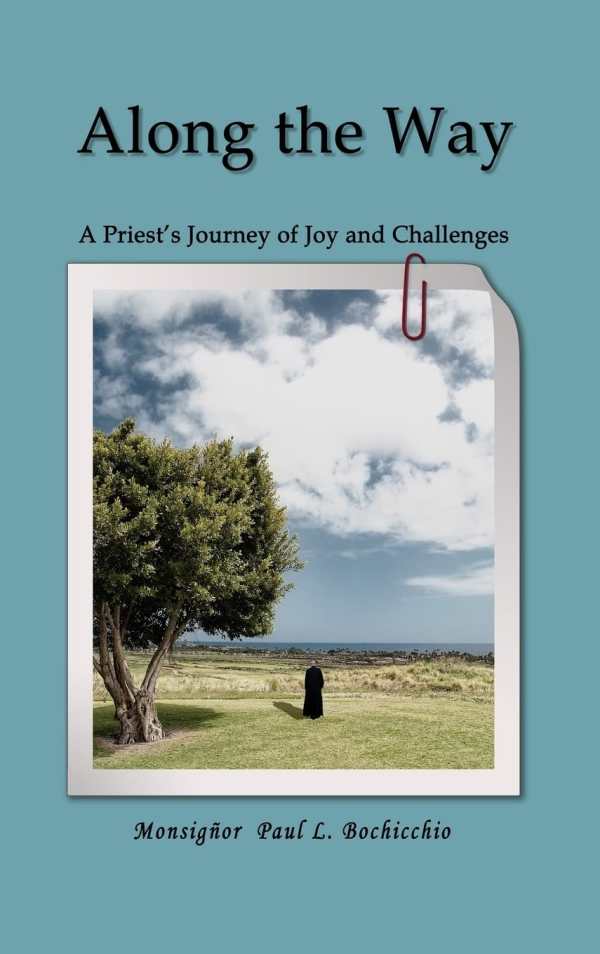Along the Way
A Priest's Journey of Joys and Challenges
Along the Way is a comprehensive memoir that gathers snapshots of a priest’s spiritual formation and life of service.
Priest Paul L. Bochicchio’s thorough memoir Along the Way summarizes his lifetime of service within religious communities.
The book begins in a technically thorough but emotionally distant manner, with its first chapter compressing Bochicchio’s life story up until his ordination into a collection of facts sans context, including records of street addresses, school names, and family birthdays. Once Bochicchio mentions that he first felt a calling to the priesthood in the second grade, it becomes somewhat more personable, though its more vulnerable details remain buried beneath bare lists, as with the names of schoolteachers, comprehensive seminary schedules, and summaries of young adulthood moments.
Indeed, the book takes a broad-strokes approach throughout. Historical events like the assassination of John F. Kennedy are referenced and called important, but their importance in Bochicchio’s own life are not defined. Allusions are made to moments of great spiritual transformation, too, but in ways that leave unfamiliar audiences thirsty for more information:
I think of that retreat as one of the best I have made in my life. I religiously kept silence for the seven days and became totally absorbed in the message of the retreat master.
Likewise, Bochicchio mentions having wanted to leave seminary several times, praising the priest who persuaded him to stay, but does not say what caused these crises and how they were soothed. Even the sea changes initiated by Vatican II are only gestured at and rushed by.
The prose becomes more tender when addressing Bochicchio’s loved ones—a few of his father’s childhood mishaps are winked at as akin to “AA testimonies,” for example, while his brother Don is remembered for his childhood habit of causing “a ruckus”; elsewhere, Bochicchio’s mother is lionized as a lifetime laborer who instilled good values in her children. Those not among Bochicchio’s family members receive even more fleeting treatment, though: They are remembered for their tutoring services and wheelchair use, the grace with which they accepted a free dinner, or angry outbursts diffused in fellowship; their lives behind these impressions are unexplored. “There is a story behind every visit, baptism, wedding, funeral, confession, and counseling session,” Bochicchio notes, and “hundreds of people who make up the mosaic of the parish,” but in zooming out to capture the breadth of such experiences and interactions, the book sacrifices specificity and vivacity.
Indeed, the book’s tendency is toward generalizations over crystallized scenes. It skips between memories and subjects with dizzying speed, fleshing little out along the way. Family trips are mentioned but not unpacked; funeral texts are reprinted verbatim. And as the book moves between chapters with few segues—skipping between autobiographical sketches, thoughts on retirement, essays on subjects including contemporary political struggles, theological musings, and lessons from different parish assignments—the impression it leaves is more of notes for a book than of a completed, flowing text.
Gathering snapshots of a priest’s spiritual formation and life of service, Along the Way is a comprehensive memoir.
Reviewed by
Michelle Anne Schingler
Disclosure: This article is not an endorsement, but a review. The publisher of this book provided free copies of the book and paid a small fee to have their book reviewed by a professional reviewer. Foreword Reviews and Clarion Reviews make no guarantee that the publisher will receive a positive review. Foreword Magazine, Inc. is disclosing this in accordance with the Federal Trade Commission’s 16 CFR, Part 255.

